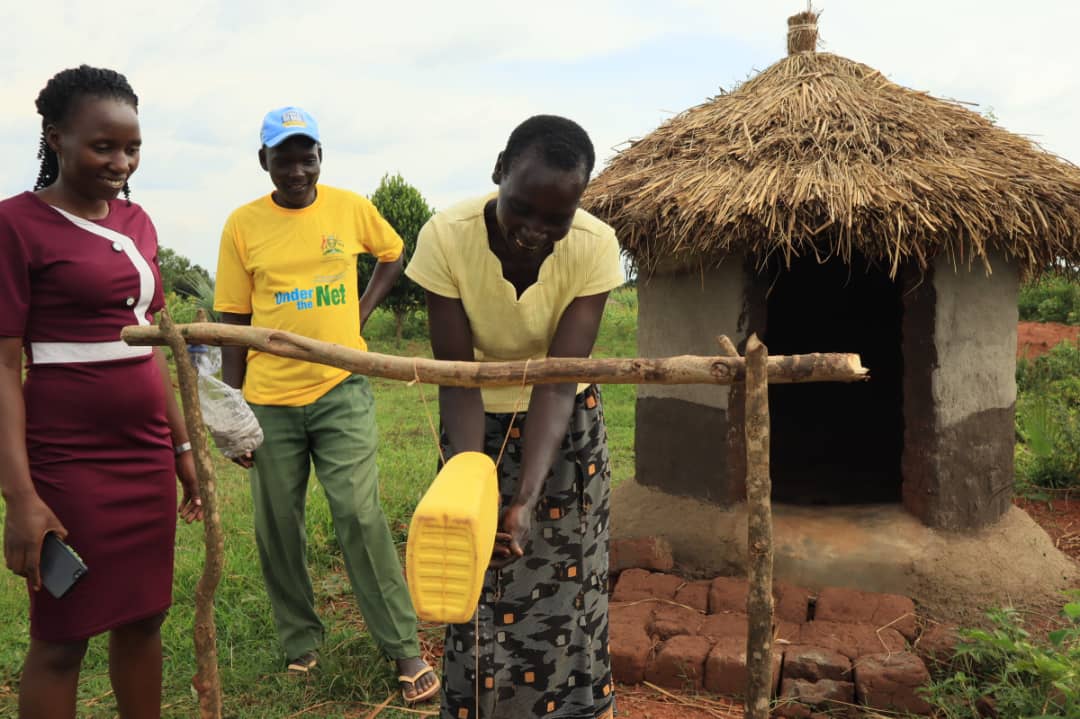Design Challenge:
How might we decrease the number of elderly people (aged 50+ years) practicing open defecation and poor hand washing behaviors in a way that is practical and accessible for them and engages the community. The aim is to end incidences of diarrheal diseases resulting from poor sanitation practices amongst the elderly people in the Kole district.
Introduction:
Research findings from the various tools indicated generally poor sanitation and hygiene practices among the elderly people in in target village in Kole District, Uganda. The experimentation aimed at developing a community-led practical and accessible solution towards decreasing the number of elderly people (aged 50+ years) practising open defecation in order to reduce incidences of diarrheal diseases. Further, the experiment also aimed at engaging the community in order to influence behaviour change towards good handwashing behaviours particularly among the elderly. The target elderly persons in the community participated in visual mind mapping aimed at understanding and documenting their hygiene and sanitation practices. This approach aided in generating solutions to the problems of open defecation, poor handwashing behaviours and improper personal hygiene among elderly persons in Kole District.
Results:
The experiment developed a community-led approach to increase accessibility to sanitation facilities by elderly people resulting to reduced open defecation practices which ultimately reduces incidences of diarrheal disease. According to Okwerodot Sub- County Sanitation Database for financial year 2021/2022), latrine coverage and accessibility increased from 64% to 78.4% and hand washing facilities coverage increased from 4% to 20.3%. This is attributed to; the number of latrines accessible to elderly people increased; 54 out of 71 elderly people having constructed a rubbish pit; 47 out of 71 elders constructing and using drying racks; 38 out of 71 elders setting up a functional hand washing facility (HWF).
Scaling:
There are plans to implement the tested approach in other homogeneous neighboring villages facing the same sanitation challenges, while integrating the approach in other community activities supported by other development partners.
Child Hug Uganda: Reducing Open Defecation and Poor Handwashing Behaviours (PDF)
